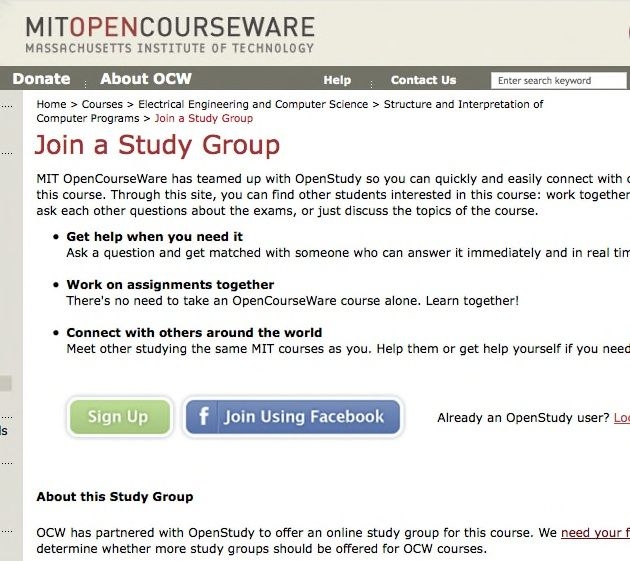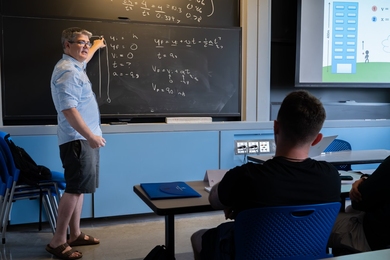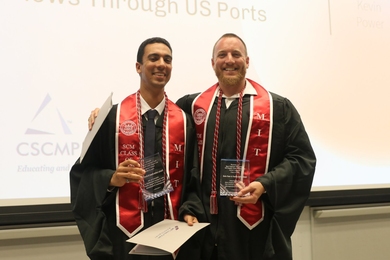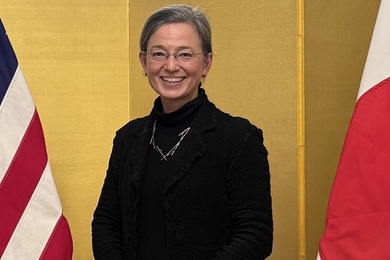Since 2002, OpenCourseWare has been sharing MIT's education resources freely and openly on the Web to improve learning worldwide. While the site has been a great success, attracting more than 100 million visits, it has offered no opportunity to interact with other users of the site. But that is now changing.
OCW has teamed up with OpenStudy, an educational collaboration utility, to help users connect and study together. Starting last month, a pilot of OpenStudy groups in association with three OCW courses has attracted thousands of OCW visitors. OpenStudy groups support real-time interaction between students and independent learners from around the world; its members can answer one another's questions, work collaboratively on problem sets and connect with learners who share interests. The study groups are sponsored by MIT OpenCourseWare and OpenStudy, but are not moderated or facilitated directly by either organization.
OCW has teamed up with OpenStudy, an educational collaboration utility, to help users connect and study together. Starting last month, a pilot of OpenStudy groups in association with three OCW courses has attracted thousands of OCW visitors. OpenStudy groups support real-time interaction between students and independent learners from around the world; its members can answer one another's questions, work collaboratively on problem sets and connect with learners who share interests. The study groups are sponsored by MIT OpenCourseWare and OpenStudy, but are not moderated or facilitated directly by either organization.
Learner response to the initial set of study groups has been enthusiastic.
"I have been always a self-learner and everyone knows MIT OCW is the best place for courses," wrote on site visitor from Turkey. "I think OpenStudy completes the whole learning process by adding a missing level. What’s more, I like answering questions I can already solve because it makes me remember points I had forgotten.”
In the first month of the pilot, the OpenStudy group for 6.00 Introduction to Computer Science has attracted more than 1,600 members; the 18.01 Single Variable Calculus group has nearly 1,400 members, and the group for 21F.101 Chinese I includes more than 430 participants.
Phil Hill, CEO of OpenStudy, expressed excitement at the learner response. "Our goal is to bring a more social learning experience to students on MIT OpenCourseWare by ensuring they don’t have to study alone. Seeing so many of them now working together from all corners of the globe is a great first step."
This week, the program was expanded to include seven more of OCW's most-visited courses: 6.001 Structure and Interpretation of Computer Programs, 6.002 Circuits and Electronics, 8.01 Physics I, 8.02 Electricity and Magnetism, 18.01 Single Variable Calculus, 18.02 Multivariable Calculus, and 18.06 Linear Algebra. Based on the response to the expanded slate of courses in the pilot, MIT and OpenStudy expect to continue expanding the program to support additional courses.
"We feel this represents an important new phase of our program's development," says Stephen Carson, MIT OpenCourseWare's external relations director. "These well-structured opportunities for learners to interact around our content magnify the value of our publication, especially for visitors with the most limited educational opportunities."






